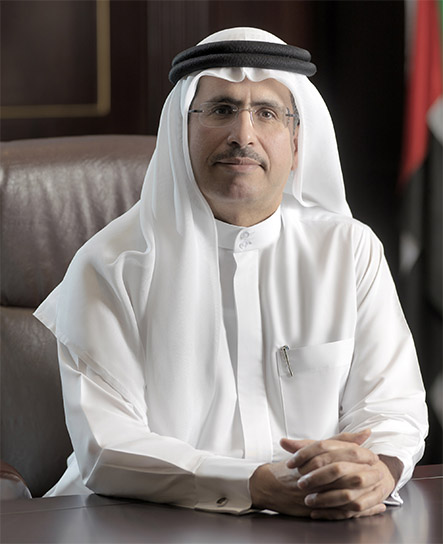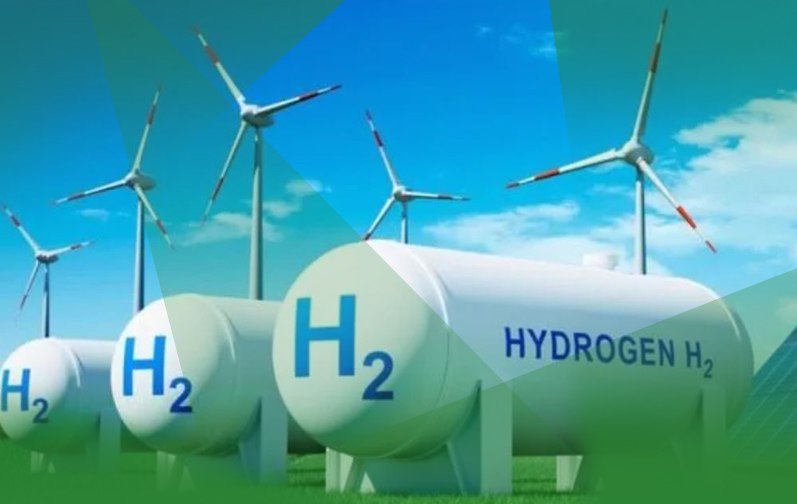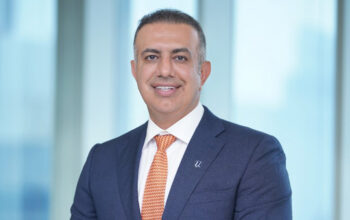Opinion Editorial: By HE Saeed Mohammed Al Tayer, MD & CEO of DEWA

Dubai, UAE, 5 January 2025:
Thanks to the wise guidance of His Highness Sheikh Mohamed bin Zayed Al Nahyan, President of the UAE, and His Highness Sheikh Mohammed bin Rashid Al Maktoum, Vice President and Prime Minister of the UAE and Ruler of Dubai, the UAE has solidified its competitive foundations and advantages in the realm of low carbon hydrogen It further accelerates the achievement of national goals to make the UAE one of the world’s largest, lowest-cost low-carbon hydrogen producers. The UAE enjoys significant advantages in green hydrogen production such as the availability of solar energy, natural gas reservoirs suitable for blue hydrogen, which is hydrogen that is manufactured by natural gas reforming coupled with carbon capture and storage (CCS), solid and flexible infrastructure, as well as strong strategic partnerships, and global investments that find an ideal market in the UAE, especially since the country is regarded as the fastest growing market for clean and renewable energy sources across the region.
In line with the UAE Energy Strategy 2050, Dubai Clean Energy Strategy 2050, and Dubai Net Zero Carbon Emissions Strategy 2050 to provide 100% of the energy production capacity from clean energy sources by 2050, the National Hydrogen Strategy plays an important role in enabling hydrogen as a reliable source of future energy, driving energy transition, encouraging investment and research aimed at enhancing technologies used, reducing the cost of its generation and storage, and establishing regulatory frameworks supporting the development and expansion of its infrastructure. Following a thorough study of hydrogen demand, the National Hydrogen Strategy forecasts local demand of low-carbon hydrogen to reach 2.7 mtpa by 2031. Global interest in green hydrogen-based investments and partnerships is receiving more attention as it is the fuel of the future and a clean, carbon-neutral fuel that mitigates the effects of global warming.
The Green Hydrogen project, implemented by Dubai Electricity and Water Authority (DEWA), is the first of its kind in the Middle East and North Africa (MENA) to produce hydrogen using solar energy, consolidating the UAE’s leadership and competitiveness in clean and renewable energy, supporting our serious endeavours to make the UAE one of the leading hydrogen exporters, by capturing 25% of the global hydrogen market by 2030. The project is in line with our ongoing efforts to reduce carbon emissions from energy and water production processes, diversify and strengthen Dubai’s position as a global clean energy hub and green economy, and achieve the Dubai Green Mobility Strategy 2030 to promote the use of sustainable transport and reduce greenhouse gas emissions. DEWA prepared a roadmap for Hydrogen Strategy that will be implemented in phases.
Since its launch in May 2021, the Green Hydrogen Project has been able to reduce 490 tonnes of carbon emissions. The project produced approximately 90 tonnes of green hydrogen, most of which was used to produce more than 1 gigawatt hour of green electric power using a hydrogen gas engine, while more than 2.5 tonnes of hydrogen were used to fuel 500 cars through ENOC’s Service Station of the Future at Expo 2020 Dubai. DEWA generates green hydrogen from the project’s hydrogen filling plant at its Research and Development (R&D) Centre at the Mohammed bin Rashid Al Maktoum Solar Park.
The project, implemented by DEWA in collaboration with Expo 2020 Dubai and Siemens Energy, produces 20 kilogrammes of hydrogen per hour, with the hydrogen storage tank capable of storing up to 12 hours of hydrogen produced using solar energy. The plant utilises a hydrogen gas motor of about 300 kilowatts of electrical energy capacity. The project has been designed and built to accommodate future applications and test platforms for various uses of hydrogen, including energy production, air, land and sea transport sectors and industry.
The Green Hydrogen project reduces the cost of generating and storing green hydrogen, thereby reducing the costs of producing clean energy and increasing the efficiency of its production. The implementation of project at the Mohammed bin Rashid Al Maktoum Solar Park, the largest single-site solar park in the world, based on the Independent Power Producer (IPP) model with a production capacity of more than 5,000 MW by 2030, plays an essential role in achieving competitive prices in green hydrogen production. Green hydrogen is produced mainly by water electrolysis using renewable energy. DEWA has achieved world records in the lowest prices for solar projects, and Dubai has become a benchmark for solar prices globally. Experts expect a significant decrease in the current high cost of producing green hydrogen in the coming years. IEA’s Global Hydrogen Review 2023 confirms that green hydrogen could be produced for $1.60 per kilogram by 2030, making it more competitive with current production methods, whose current cost ranges between $3 and $6.5 per kilogramme.
DEWA spares no effort to enhance energy security, sustainability, and efficiency, raising the UAE’s global competitiveness in this vital sector, and ensuring that Dubai’s growing energy demand is met and that accelerated economic growth is kept at pace. We are striking a balance between economic needs and environmental objectives and expanding environmentally friendly energy use, building on the latest innovations, research, and investments that drive sustainable development and ensure a greener and brighter future.








